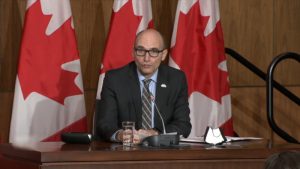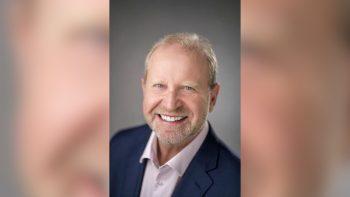
Earlier this week, Health Minister Jean-Yves Duclos told news outlets that the mandatory testing of all passengers coming from non-U.S. foreign destinations would begin very soon. However, no details were provided.
On 03DEC, the minister sought to clarify complicated new COVID-19-related travel requirements. Speaking to reporters, this is how Duclos described the roll-out of the program:
Travellers coming from non-U.S. foreign destinations need an arrival test
Once a fully vaccinated passenger arrives at a Canadian airport from a non-U.S. foreign destination, they will either be swabbed by a public health nurse or get a take-home test.
That traveller must then self-isolate at home or at their designated quarantine destination (such as a hotel) while they await the results of the test. It may take up to three days to get a result.
If that traveller gets a negative result, they're free to leave self-isolation and move about as they normally would. If the test is positive, they must stay in quarantine for 14 days.
If a passenger has a connecting flight, they get swabbed or collect a take-home test and then continue on to their final destination.
If, for example, an inbound passenger from Hong Kong arrives in Vancouver to catch a connecting flight to Kelowna, B.C., that traveller would get tested or pick up their at-home test in Vancouver before proceeding to the connecting flight. That passenger would then have to self-isolate in Kelowna while they await the results of the test.
Travellers who are given a take-home test self-administer the test while on a video link with a nurse from a private company, such as Dynacare, LifeLabs or Switch Health, to make sure it is done right. The specimen is then sent via courier to a laboratory. The instructions are included in the testing kit handed out at the airport.
The federal government is covering all of the costs associated with arrival testing.
Travellers coming from the U.S. are exempt for now
None of these testing requirements apply to fully vaccinated travellers coming directly from a destination in the U.S.
For example, a fully vaccinated traveller flying non-stop from Fort Lauderdale, Florida to Montreal would only have to do the pre-departure molecular test 72 hours before departing for Canada. They would not need to subject themselves to an arrival test upon landing in Montreal.
Duclos said the U.S. policy may change in time.
"With COVID-19, we want to protect, as best as possible, people's health and safety," he said. "If we have to impose additional measures at the border, we will."
The arrival testing regime does apply, however, if a traveller coming from abroad connects at a U.S. airport to a flight for a Canadian destination.
For example, if a passenger from Paris arrives in Atlanta to meet a flight destined for Toronto, that traveller would be treated the same as a traveller on a non-stop flight from Paris to Toronto — meaning they would need to go through the mandatory arrival testing process.
"Let me be very clear. All travellers should be expected to be tested on arrival. We will not be able to test every targeted traveller overnight. It will take a few days," Duclos said.
Duclos said the federal government is working with labs and provincial health authorities to ramp up the testing capacity required to process the tens of thousands of travellers who arrive in Canada from abroad every month.
The minister said lab capacity set aside to process these tests has increased by 50 per cent since Wednesday, allowing technicians to run tests at a faster pace.
Uneven testing at airports could mean take-home tests
Duclos said some airports will be better equipped to swab passengers while other, more congested facilities will need time to set aside the space to launch this massive health operation.
The airport operators are pushing Ottawa to rely on take-home tests.
The CBC reports that Daniel-Robert Gooch, the president of the Canadian Airports Council, said it's simply not feasible to test all incoming passengers in the arrival halls of the country's largest airports.
"The use of off-site tests, such as take-home tests, will be essential to making it work. Our members have told us it would not be possible to process 100 per cent of all non-U.S. international travellers on-site," he said.
Gooch said Canada's airports are questioning just how safe it is to cram thousands of passengers into a confined area of an airport not purpose-built for health procedures. He said their preference is for travellers to take these tests "in the safety and comfort of their own home or other destination."





